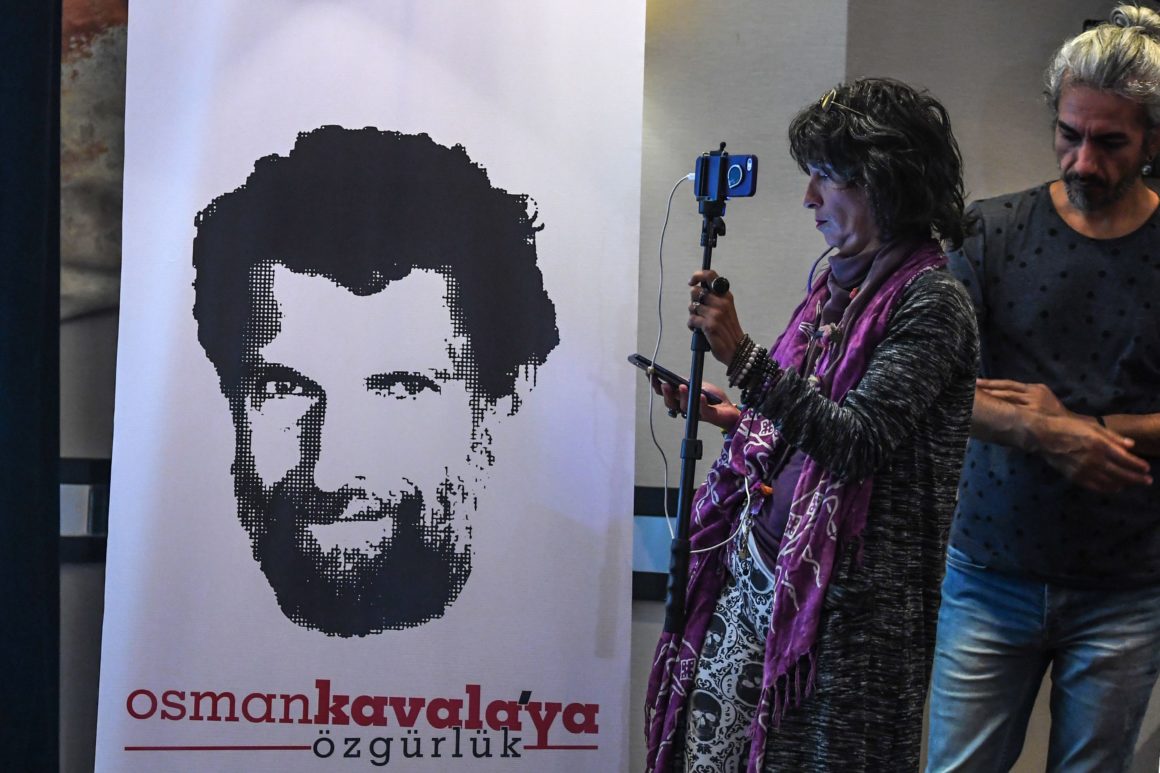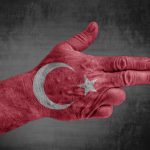When Turkish President Recep Tayyip Erdoğan launched a fierce political crackdown in the wake of a failed coup in 2016, Osman Kavala did not expect to become a target.
“I doubt if they’d be interested in me,” Kavala, a former businessman and Turkey’s best-known promoter of social and political reconciliation, told a British visitor in September 2017.
A month later he was arrested. He has been in prison ever since, without trial and largely in solitary confinement. An indictment charged him with “attempting to annihilate the constitutional order.”
Now a group of exiled Turkish writers, journalists and political reformers has launched a campaign to win the Nobel Peace Prize for their country’s most prominent cultural activist.
Under normal circumstances, the Norwegian Nobel Institute would be unlikely to give its peace prize to a prisoner — repression in a single unfortunate country is rarely “enough.” But this year could, and should, be different.
The new authoritarian direction of countries that were thought to be consolidating democracy — from the United States to Poland, Hungary, the Philippines and Brazil — is one of the most disturbing global trends of our time. Erdoğan is a major star in this galaxy of malodorous autocrats. Awarding the Nobel Prize to Kavala would draw attention to the Turkish president’s abuses.
Kavala’s dedication to grassroots democracy and ethnic pluralism makes him, in many ways, the quintessential anti-Erdoğan.
They are breathtaking in scope: Since the 2016 coup, an estimated 150,000 public employees have been deemed insufficiently loyal to Erdoğan and dismissed from their jobs, among them thousands of university professors, judges and prosecutors. Nearly 200 media outlets have been shut. Turkey now holds nearly one-third of the world’s imprisoned journalists.
Of course, winning the Nobel Peace Prize would not necessarily ease Kavala’s predicament. The Chinese writer Liu Xiaobo, who won the prize in 2010, was not released from prison until seven years later, when he was terminally ill.
But recognizing Kavala would buoy free-thinkers jailed in all once-democratic countries that are sliding toward tyranny. It would be a global statement. And it would fit the Nobel Institute tradition of awarding the prize to someone who exemplifies a global crisis. (In previous years, the prize has been awarded to nominees fighting sexual violence in war, promoting nuclear disarmament, confronting climate change and defending Muslim women.)
Kavala’s plight mirrors that of thousands who are imprisoned for defending democracy against newly anti-democratic regimes.
Kavala’s dedication to grassroots democracy and ethnic pluralism makes him, in many ways, the quintessential anti-Erdoğan.
I first met Kavala as a correspondent in Turkey more than 20 years ago, when his company was at the center of a controversy in the Mediterranean town of Daylan.
Kavala Holdings was building a beachfront hotel in the town, but environmentalists complained that lights would disorient and ultimately kill thousands of sea turtles that nested on the beach. To everyone’s shock, Kavala, who had taken over his father’s holding company, came to Dalyan, met with protesters, tried to modify his hotel design to reduce the impact on turtle nesting, found that this was impossible, and finally decided to abandon the project.
Kavala’s activism has focused on bringing Turks together with their Kurdish and Armenian neighbors. In 2002, he founded Anadolu Kültür (Anatolian Culture), a foundation that has run a bustling arts center in Diyarbakir, the main city in Turkey’s Kurdish region, for more than a decade, and a gallery-and-studio complex in Istanbul that features artists who tackle provocative themes.
The foundation, partly financed by Kavala himself, also sponsors scores of other projects including a primary school for Syrian refugees, a Kurdish film academy and the Armenia-Turkey Youth Orchestra.
Kavala became a target “precisely because he represents everything that Mr. Erdoğan’s regime is trying to obliterate: a thriving and independent civil society, tolerance for intellectual diversity, cultural autonomy for Kurds and other minorities, cooperation with nongovernmental networks abroad,” one of Kavala’s former schoolmates, the Harvard economist Dani Rodrik, wrote after his arrest.

Turkish President Recep Tayyip Erdoğan | Edem Altan/AFP via Getty Images
Indeed, Erdoğan has denounced Kavala as a tool of foreign interests bent on weakening Turkey, and linked him to the financier George Soros, who he claims is trying to “divide countries.”
Nothing could be further from the truth. Kavala is not a polemicist; he is a quiet diplomat who listens more than he speaks.
The Nobel Institute last week confirmed receipt of the first letters nominating Kavala for its 2019 peace prize. Given the extensive support network Kavala has built in Europe, more are likely to follow.
Kavala’s plight mirrors that of thousands who are imprisoned for defending democracy against newly anti-democratic regimes.
A prize for him, his friends argue, would be a prize for each of them.
Stephen Kinzer is a former New York Times foreign correspondent and a senior fellow at the Watson Institute for International and Public Affairs at Brown University, Rhode Island.
Source: Politico



